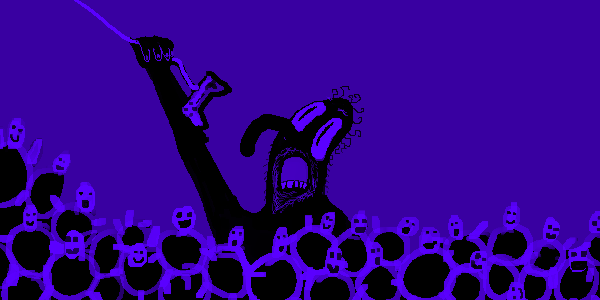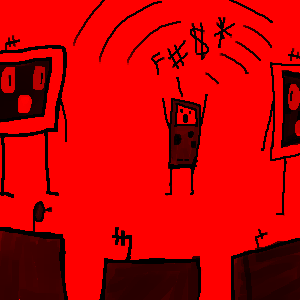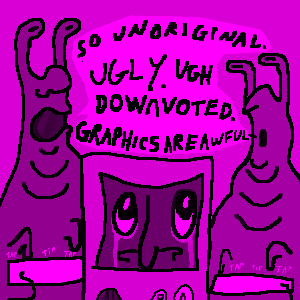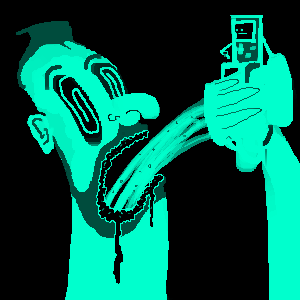New Blood - What are the changes we need to make for children entering the industry?
As the age barrier continues to rapidly drop for entry into games development, what social consequences on the games industry may this have for developers and the younger generations and what changes should we make?

 Awesome story: I returned to the summer camp in the US I've been working at for the past 3 years. A previous student of mine back from 2012 had made sixty seven dollars from selling his app on iTunes. He's 9.
Awesome story: I returned to the summer camp in the US I've been working at for the past 3 years. A previous student of mine back from 2012 had made sixty seven dollars from selling his app on iTunes. He's 9.

There's been a lot of talk in the UK as programming becomes compulsory in schools, with thousands of children getting involved in games development. I've worked with around five hundred 7-17 year olds throughout my time at Frenchwoods and there is some tremendous potential and innovation coming from this age range.
Cheaper and user friendly programming interfaces are rapidly lowering the entry age to the industry, so as the adults and role models of this new wave of talent, what changes should we make to the industry to accommodate the new blood?

I should make this clear before I start discussion that the games industry thus far has been a tremendously welcoming and helpful place for me, with no red tape or restrictions to who you can talk to. Everyone is out to help each other and nothing motivates me greater to keep building video games than to stay part of such a wonderful community.
It's also worth mentioning that the incident used in the article as far as I know is an isolated incident and is used purely as an example of what might be a more frequent future occurrence if not addressed. This is not representative of children in the industry and I would hate to be part of the media that tars younger generations with the same brush. They are a highly promising group, many of which that are making dinosaurs of even my generation.
Now that's out of the way, to business....

Behavior of Child Developers in the Game Development Community & the Response of Adults
Several weeks ago, a developer called James* posted on the largely popular Facebook page "Indie Games Developers". His statement was provocative and more than likely naively made. Initially the community replied with structured arguments and advice. The mood shifted as random slurs and insults bled into the conversation and due to his rejection of the structured opinions expressed earlier by the community members, he began verbally attacking individuals with public and private messages.
After hours of arguments and damage done the community page was littered with hostile comments towards the individual. These destructive comments varied from harsh critisism to outright bullying. At the ugliest point, developers were retrieving images of James off his Facebook page and making memes by twisting his earlier comments. Whilst he continued regardless to post videos, it was clear from his face and tone of voice that it was upsetting him.
This was very uncomfortable for me to witness as he looked a similar age to my younger brother, so I posted on the group condemning those who lacked self control and indulged his childish behavior. Even to the point that his age became known as sixteen, several developers continued to behave in an abusive manner both to him and also to me.
Having spoken to many of those who he was hostile to through private messages (whilst the conversational material on James' part was completely unacceptable), very few developers seemed to have the control to simply switch off Facebook and walk away.
The solution I see for dealing with similar situations such as this in the future is to imagine the conversation as if it were at a conference in the same room as hundreds of individuals of varying importance and prestige in the industry. If the same scenario had played out at let's say, Pax, there's a very low likelyhood that James would have made such extreme comments. If he had, the surrounding developers being able to visually see his age would have likely either left the conversation or more likely given him the appropriate guidance. What I wouldn't expect to see would be either James verbally attacking industry veterans, or at the other end of the spectrum, developers ganging up on a 16 year old.

Uploading Games Online and Community Comments
For adults, the game comments section can be a dreaded place to explore. I've spoken to developers with hugely successful titles and despite the praise and universal approval of their creation, the negative comments still get to them. I myself have had some pretty nasty things said to me on my games on Greenlight, but I usually read them with several handfuls of salt.
On the other hand, the effects of these upsetting comments on younger games developers with not so thick skin may be significantly greater. If those playing a game don't realise the age of the developer (and what an achievement it is for someone of that age to build a video game), harsh comments or feedback may occur. An example - Ultimate Ninja is built by a 10 year old. For someone his age to build a ten level local multiplayer shooter is fantastic, but me presenting the same product; I would be subject to critique and comments from online communities. Whilst critique is key to improvement, it's delivery determines whether the individual grows from the feedback or their spirit is broken.
A solution to this could require developers to provide an age (or state whether they were under 18 years old). This would create context for the quality of the game and hopefully make developers and community members think twice about posting harsh or explicit comments. Whilst a plus for child protection, this may have a drastic effect on the number of consumers available for younger ages. I suppose the question to then be asked would be if they're horrible towards you, would you want them as an audience? Another flaw I can see with this structure is that buyers may immediately use this aging system to filter out younger developers on the poor assumption that because they're young, their product won't be up to industry standard.

Drinking at Developer Meetups
For the students in my class who expressed interest in entering the industry, for networking opportunities I found myself struggling to suggest events that didn't involve alcohol.
I have enjoyed many a beer (MANY a beer) with games developers and of course a little liquid courage goes a long way when you're about to talk to a publisher/journalist, but the presence of alcohol alienates younger developers from events, either through them being too young to enter the venue or if drinking gets out of hand. I myself am not comfortable drinking around kids as it's far too easy to damage your relationship with them. A solution to this would be for the first few hours of developer meetups to remain dry (e.g. 6pm - 9pm) after which drinking can commence and before which the younger gamedevs can get involved.
More than likely, the solutions that I've offered aren't anywhere near perfect, but it is something that needs addressing before these young developers inevitably begin pouring into our industry. The more people we have talking about it, the quicker these problems will be solved. As well, the little I've discussed are just a couple of drops in an ocean of a topic, so we need to try to identify and discuss these problems now. This is no longer a matter of the odd bedroom recluse; there are millions of children around the UK and even around the world currently being educated in this game building software, something that is likely to effect the children of your families and of your colleagues families. We have to remember that whether we like it or not, we are now their role models.
Thanks for reading and please comment as I'd be fascinated to hear your opinions on this subject.
*Name changed to protect identity of person.
About the Author(s)
You May Also Like









